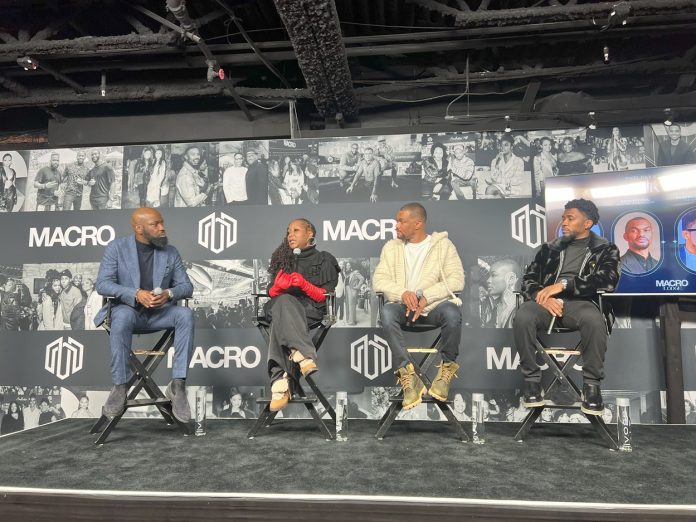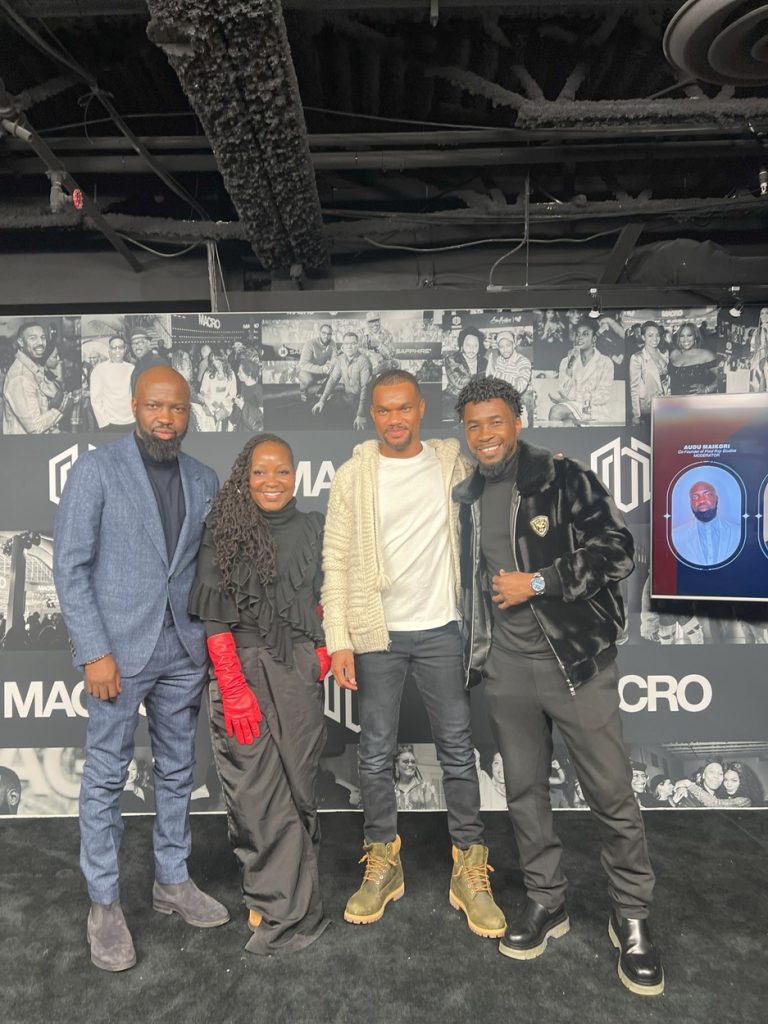
Filmmaker Robenson Lauvince, hailing from Haiti, is a highly esteemed visionary within the Caribbean film industry with a diverse portfolio spanning music videos, documentaries and acclaimed films featured on major streaming platforms like Amazon Prime. As the founder of Clearshot Entertainment, Lauvince is deeply committed to mentorship, championing stability and growth in Haiti through his work. His accolades include prestigious titles such as “Film Director of the Year” at the Haitian Influencer Awards 2022 and recognition as one of “Top 10 Influential Persons” by Mag Haiti in 2018.


Lauvince’s recent participation in a Sundance 2024 panel organized by Afrika Haus, themed “Emerging Opportunities in the African + Caribbean Film Industries,” underscores his dedication to amplifying Caribbean voices on the global cinematic stage. In an exclusive interview with Island Origins, Lauvince shares insights from the panel, emphasizing the critical need for diverse representation in film and the trajectory of the industry towards fostering equal opportunity and inclusivity.
Please start by telling us a little bit more about the panel.
We discussed investment opportunities in these [film] industries and emphasized building stronger connections within the global African diaspora. Discussing this topic was crucial because it raised awareness about the significance of collaborating with the global African community to maximize the value in the growing film industry. The goal is to encourage increased collaboration between African and Caribbean countries within the film industry.
What are your main takeaways from the other experts on the panel?
The key insight shared by fellow panelists during the discussion was a unanimous vision for the advancement of the film industry in the Caribbean and Africa. The collective aspiration is to witness a flourishing film sector, with a shared commitment to elevating the Caribbean and African film industry to new heights.

What are some of the seismic or gradual shifts you see coming that are affecting or will soon affect the Caribbean and African film industries? How do you suggest preparing for them?
I expect more young people to get involved in the film industry, and I also anticipate increased support from Caribbean and African governments in every aspect of the film sector. A proactive approach to preparation involves organizing more film contests and film festivals to encourage young individuals to create movies. This, in turn, may inspire government officials to establish additional film schools and allocate more funding to the film industry in the Caribbean.
What would you like to see change within the Caribbean in relation to the film and overall media industry? How do you think we can get started?
It would be beneficial to see a change in the Caribbean where government officials across all Caribbean countries provide tax incentives and protection for filmmakers. Media outlets and the Caribbean diaspora can contribute to supporting the Caribbean film industry by actively promoting Caribbean films, similar to the support given to Hollywood productions.
From what you’ve seen, are more Caribbean artists, actors, directors, etc. getting a place at the table? How can the diaspora be more involved in their success?
Currently, the focus is not just on securing a place at the table but rather on actively claiming that place. The most effective approach is for the entire Caribbean to collaborate, bringing together the film and music industries. Through collective effort, the region can become stronger and more influential, ensuring a more prominent presence. This collaborative effort should also include the Caribbean Diaspora. With unity among all Caribbean countries, the collective impact can be formidable, making the region unstoppable in its pursuit of recognition and influence.
In 2024 some new films with Caribbean plots / characters are coming out (“Bob Marley: One Love,” “Shirley,” etc.) and seem to be anticipated by both Western and diasporic audiences. How do you expect stories like these to affect the industry?
I strongly believe that the Caribbean film industry should follow the example set by ‘One Love.’ It emphasizes the importance of authentic stories produced by Caribbeans. Our narratives are best conveyed by us, reflecting the essence of our people and culture. Initiatives like ‘One Love’ pave the way for us to tell stories that truly represent our identity, culture, and nation. I am personally working on a film titled ‘July 7,’ which recounts a real event in Haiti about the life of the assassinated president. This, I believe, is a positive direction for us to authentically portray our culture and history through our own lens.
What inspired your interest to get involved with your field? What do you consider your greatest accomplishments or contributions so far?
In my hometown in Haiti, there was a lack of visual representation during my upbringing. Few individuals were engaged in commercials or filmmaking at that time. It had always been a personal dream for me to become a filmmaker, to serve as a representative for my country and narrate our culturally rich stories. Having the opportunity to make my voice heard through film is a significant achievement for me. One of my proudest accomplishments is the ability to share authentic stories from our community. In today’s visually driven world, storytelling through visuals holds great importance, and I am grateful to contribute to ensuring that the narratives from my background and roots are accurately represented without any misinterpretation.
What are some of your favorite Caribbean films?
I have a selection of favorite Caribbean films, and among them, I particularly enjoy the Haitian movie “Languichatte Debordus dans Founérailles” and “Cicatrice.” Additionally, I have a fondness for “Shotta,” a Jamaican film starring Wyclef Jean.
What innovative distribution models or partnerships are helping African and Caribbean films reach more audiences globally?

Regarding distribution in the Caribbean, it’s not currently available. In Haiti, filmmakers face the challenge of independently finding ways to distribute their movies and bring them before an audience. For instance, in 2018, with my successful film “Married Men,” I had to tour the film across 120 cities in Haiti, personally arranging venues like ballrooms or schools instead of the ideal movie theater setting. Every filmmaker aspires to showcase their work in theaters with optimal quality, but having to use personal screens and projectors detracts from the true cinematic experience and made it a challenging task to screen my film.
Growing up in Haiti, going to the movies was a popular activity. I was inspired by a local filmmaker. The community enjoyed going to the movies, they had a strong preference for local films over international ones, because they were able to connect deeply with the stories. Unfortunately, the earthquake in January 2010 led to the destruction of Haiti’s movie theaters, and currently, there are no operational movie theaters in the country.
For filmmakers in Haiti, having a platform like Netflix could be a game-changer, but Netflix’s availability in Haiti is highly limited. Many people resort to using Netflix US to access a broader content library, as the local Haitian region provides access to only about 2000 titles. There is a substantial global Haitian audience who subscribed to Netflix [and] who are eager for Haitian content on Netflix; unfortunately, the limited availability prevents Haitian filmmakers from showcasing their work on the platform
I am a strong advocate for collaboration, especially appreciating the unity between the Caribbean and Africa. I had the privilege of collaborating with individuals from the Dominican Republic on a film and it was a rewarding experience. The collaboration extended beyond Haiti and the Dominican Republic, involving a diverse group of talents from various Caribbean regions. Witnessing the alignment of vision and talent among such a varied group was truly inspiring.
Additionally, I had the opportunity to film a movie in Africa a few years ago, and it was an extraordinary experience. The support and sense of community between the Haitians and Africans were wonderful aspects of the journey. Overall, I believe that the Caribbean have numerous talented individuals, particularly in the realm of film. I advocate for Caribbean countries to unite and establish a film community unique to our region, similar to Hollywood, Bollywood and Nollywood. A Caribbean film community could serve as an excellent platform to unite filmmakers, creatives and talent from the Caribbean, fostering collaboration and opening up new avenues for opportunities






























